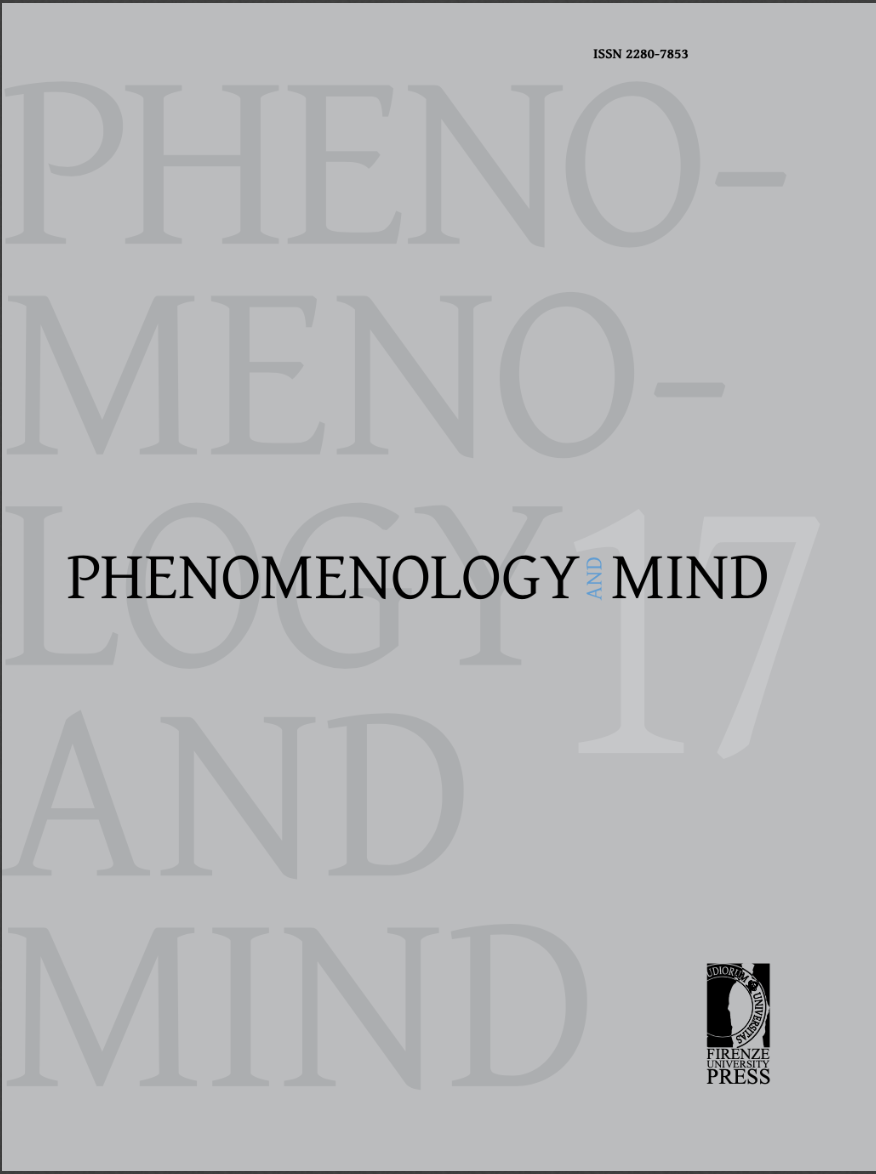Published 2016-11-26
Keywords
- touch,
- embodiment,
- bodily self-awareness,
- Husserl
How to Cite
Abstract
In this paper I aim at highlighting the role touch plays in comparison to other sensory modalities both in our apprehension of reality and in the development of our bodily selfawareness. I will try to discuss above all the latter topic by showing that touch enjoys an unique status among the senses because of the coincidence between its bodily organ – the flesh – and its material sensory medium. For this essential link with the whole living organism touch ensures at the highest degree our anchorage to the world and exerts an epistemological supremacy since its cognitive performances contribute to establishing a robust sense of reality, by confronting ourselves with the resistance opposed by the things. In its essential connection with proprioception, kinesthesia and bodily feelings tactile perception constitutes the bodily intentionality in its basic form and therefore assures the mutual interplay between different sensory modalities. Another exclusive feature of tactile perception consists in its double function as proprioceptive and exteroceptive direction, as shown by the unique phenomenon of touchant/touché. Husserl and Merleau-Ponty have devoted their attention to the relevance of this experience in generating the bodily self-awareness in its reflexive structure.

